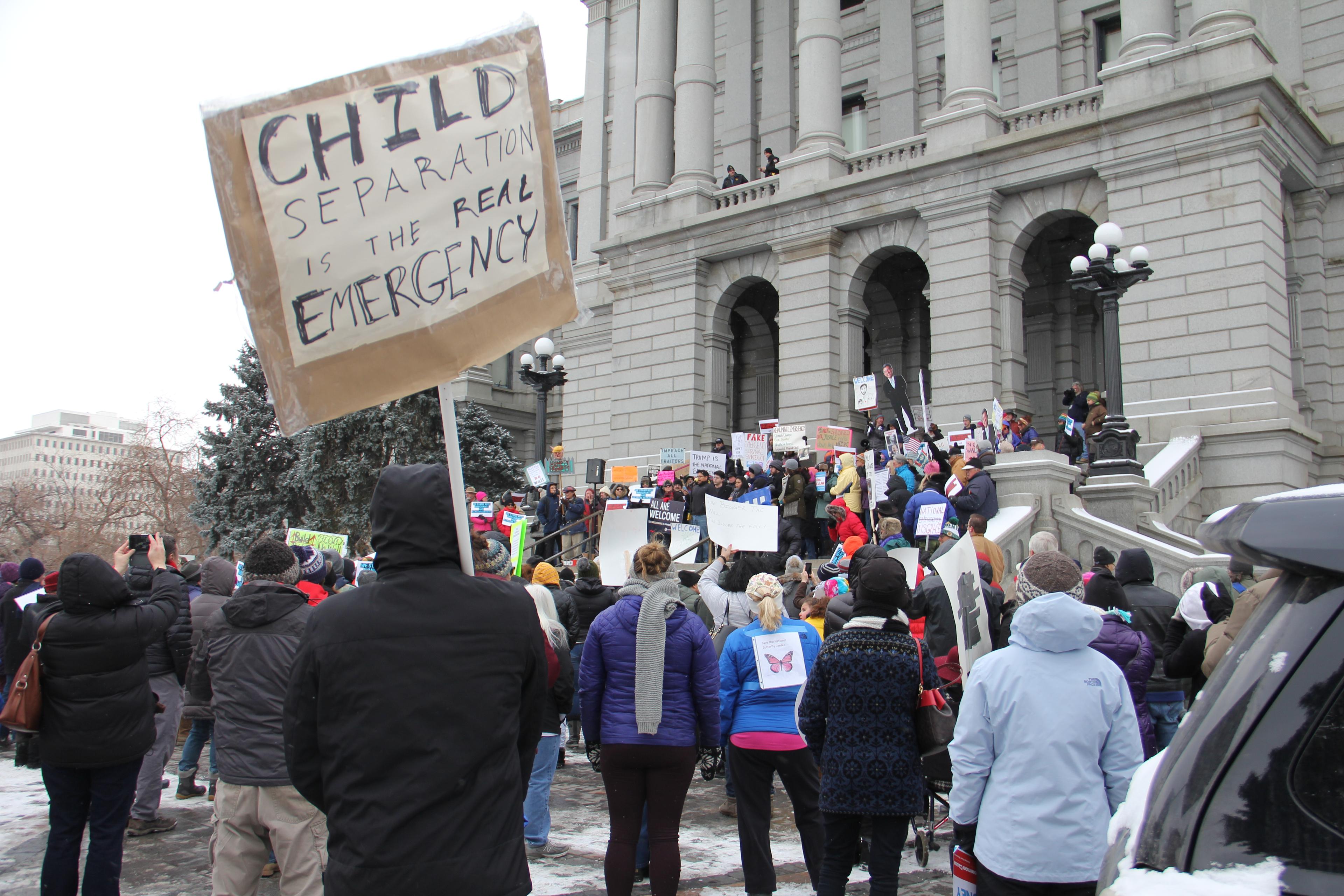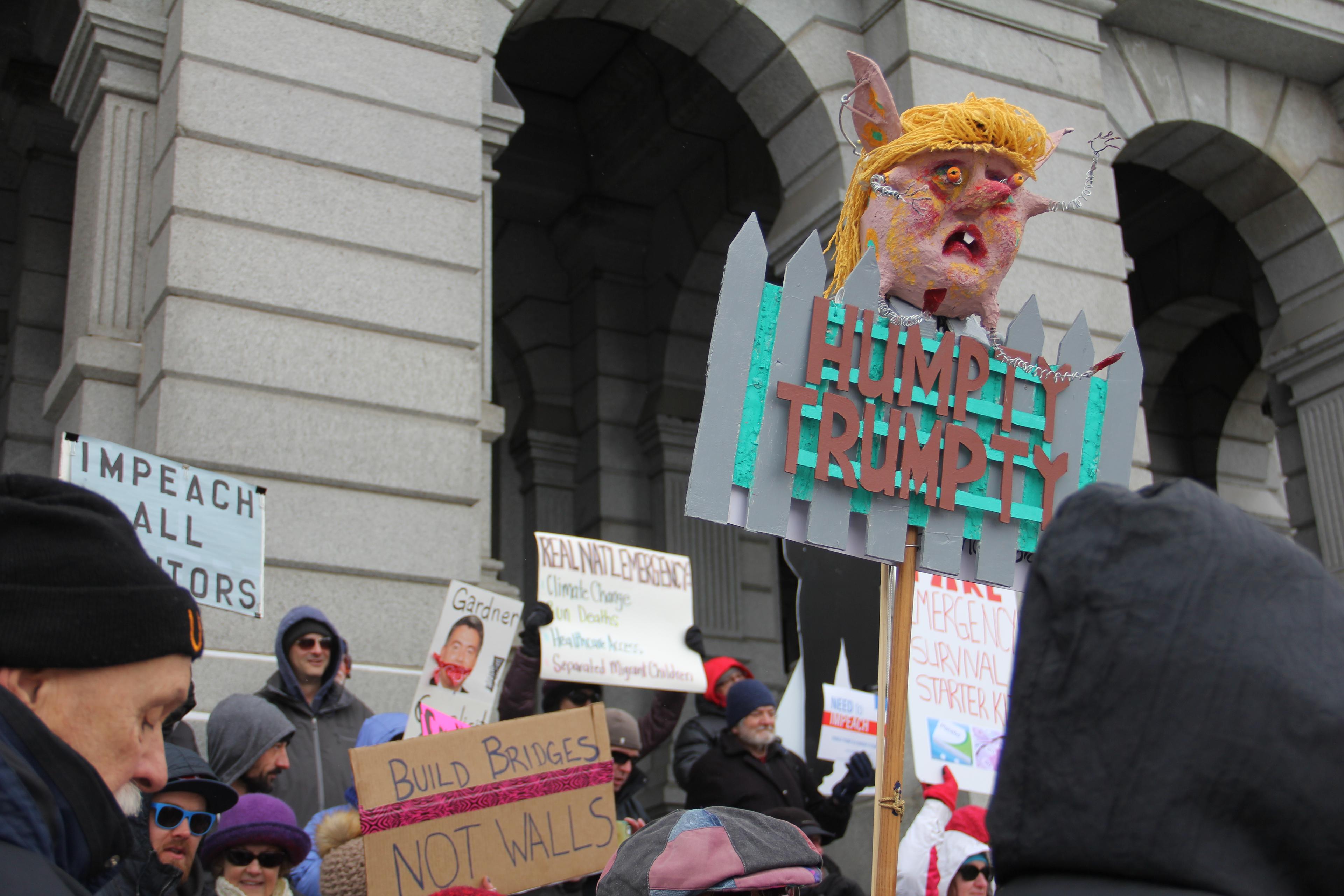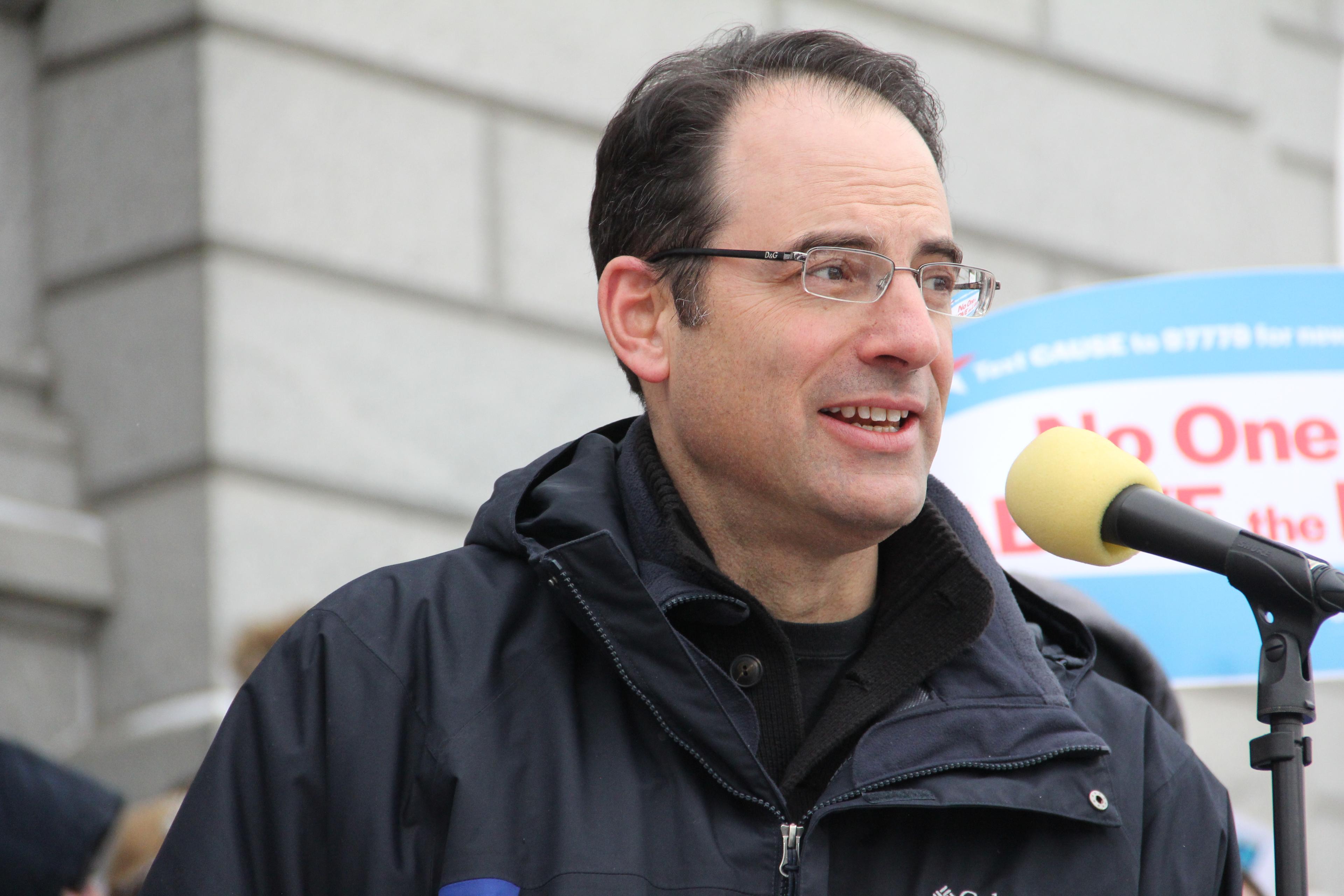Colorado Attorney General Phil Weiser joined more than 100 demonstrators outside the State Capitol on Monday to call out President Trump's national emergency declaration to provide funding for a border wall along the U.S.-Mexico border.
He then received a roar of approval after he publicly announced his office would be joining a California-led lawsuit against the Trump administration challenging the president's decision, which the president announced last Friday.
"In Colorado, we will be on the side of the rule of law," Weiser said.
Trump's declaration on Friday sought to allocate roughly $8 billion for construction for the wall, The Hill reported. The decision came after he signed a spending bill last week approved by Congress that didn't include funding for the wall, which was a key campaign promise.
Weiser, a Democrat, said Monday that the president's effort to spend money differently than what Congress provides "would undermine the checks and balance at the core of our Constitution." He said the state would be "hurt" by the president's decision because it would lose out on funds that are supposed to be spent here.
Gov. Jared Polis in a statement last Friday criticizing the President's decision, calling it "an astonishing abuse of power." He joined Weiser in a new, joint statement on Monday announcing the state would join the lawsuit after concluding Colorado "could lose tens of millions in military construction dollars that would be diverted to build the wall."

"Our military bases play a critical role in our nation's readiness and are economic drivers in several communities," the joint statement said. "In this action, we are fighting for Colorado's interests and defending the rule of law."
Other states joining the lawsuit include neighboring New Mexico, as well as Connecticut, Hawaii, Minnesota, New Jersey and Oregon, CBS News reported.
The lawsuit will challenge Trump's use of emergency powers under a bill passed in 1976.
This law, called the National Emergencies Act, was passed in 1976 by Congress. So the lawsuit filed by states isn't necessarily challenging the constitutionality of Trump's decision, according to University of Colorado Law School professor Richard B. Collins.
"There are constitutional issues working in the background, but essentially they're just saying he has no legal right to do this," Collins said.
He added that the law was passed to give the president special authority during emergencies, though Collins said it's not likely Congress had anything like this in mind when they passed the bill. He said past presidents including President George W. Bush and his father George H. W. Bush used the powers granted by the bill during their tenure.
Collins believes the president has a 60-40 chance of "winning" the lawsuit partially because the bill's language is broad and the Supreme Court is stacked in his favor.
Weiser, just two months into his new role, made it clear even before he came to office that he would work to confront certain Trump policies in his role. He mentioned Trump's election as one of the reasons he decided to run.

Quoting George Washington, Weiser said the constitution is "sacredly obligatory upon all," and must be followed by everyone, including the President.
"We cannot be complacent about our constitutional democracy," Weiser said. "There are lots of governments around the world with great constitutions that exist on paper. What makes our constitution real is engaged citizens and that's all of you."
President Trump expected to be sued over his decision.
He predicted it. He spoke about how the situation would play out after his declaration, delivering a stream-of-consciousness breakdown last Friday.
"So the order is signed and I'll sign the final papers as soon as I get into the Oval Office and we will have a national emergency and we will then be sued and they will sue us in the Ninth Circuit (appeals court) even though it shouldn't be there and we will possibly get a bad ruling and then we'll get another bad ruling and then we'll end up in the Supreme Court and hopefully we'll get a fair shake and we'll win in the Supreme Court just like the (travel) ban," Trump said on Friday.
Trump's controversial travel ban, also referred to as the Muslim ban, barred people from predominantly Muslim nations from temporarily entering the country. The Supreme Court ruled 5-4 in favor of upholding the ban in June 2018, with the majority citing national security concerns for their ruling.
Correction: This story originally indicated an incorrect amount of money that President Trump is seeking to build a border wall through his emergency declaration. It is $8 billion.












